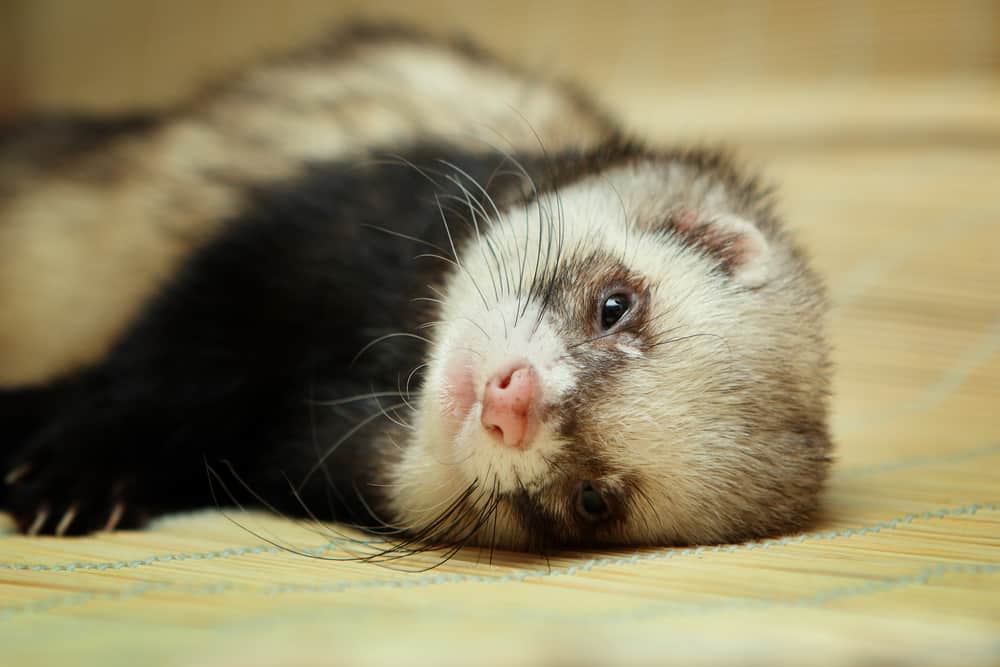
History
Ferrets aren’t wild animals, but are thought to have descended from the European polecat. It’s not clear exactly when these creatures began to be domesticated, but it was probably between 2,000 and 3,000 years ago. The earliest mention of ferrets is in Greek historical documents that were written around 450 BC. Due to their size and shape, the people of Britain used them for hunting, where they would flush rabbits and rodents from their holes to be shot by the hunter. Interestingly, they’re also used to help lay cables, as wires can be attached to a harness on the ferret and the animal can be sent through holes that would otherwise be too tricky to access.
Life Span
Ferrets live between 6 and 10 years, on average but a small number of ferrets may live for as long as 12 years.
Distribution and Habitat
The European polecat, who is the wild ancestor of domesticated ferrets, lives in forests across Europe.
Behaviour in the Wild
Polecats like to live alone and are generally only active at night. They mark their territory by using a strong smell that comes from their anal glands. On average, each polecat’s territory spans an impressive 100 hectares. These animals live in dens that they build in tree roots, in old rabbit burrows or among rocks. Rabbits, birds and small rodents are their main prey, However, they also eat amphibians, carrion and bird eggs. After stalking and grabbing their prey, they kill it with a quick bite to the neck. But generally, ferrets are non-aggressive pets to human beings. However, beware that biting can sometimes occur in older ferrets who haven’t been handled much.

What’s it like to own a pet ferret?
Pros
- Ferrets are highly intelligent. You can even teach them a number of tricks.
- Ferrets are quiet animals. However, they sometimes make a giggling sound when playing.
- Ferrets are sociable. They love socialising and enjoy living in groups.
- Ferrets make excellent pets, despite their savage history.
- Ferrets can be trained to use a litter box, but not 100% like a cat will.
- Ferrets can help decrease stress levels.
Cons
- If you are living in America, ferrets are illegal to own as pets in some states.
- Ferrets are highly prone to heat stress.
- Ferrets need vaccines. If you are planning to own a ferret, there is a high possibility of spending £100-£250 for vaccinations.
- Ferrets definitely need a lot of grooming. This can include clipping nails, cleaning their ears and brushing their teeth. This isn’t something you want to slack on.
- Ferrets cannot live alone. You really need to get two or three of them.
- If ferrets are not trained and handled well from a young age, you could end up with an aggressive pet on your hands.
Did you know?
The name ferret comes from the Latin “furonem” which means “thief”.
An unspayed female ferret is called a jill while a spayed female is a sprite (yeah, like the soft drink!). An intact male is a hob and a neutered male is called a gib.
Baby ferrets are called kits.
The ferret’s primary predators are owls, foxes and badgers and their main prey are mice and rabbits.


